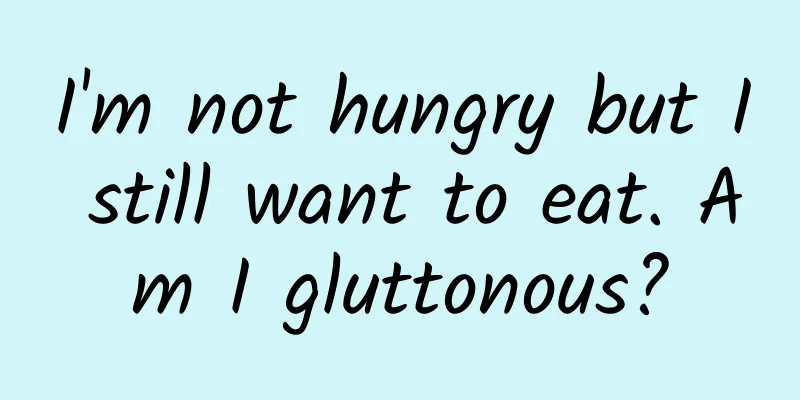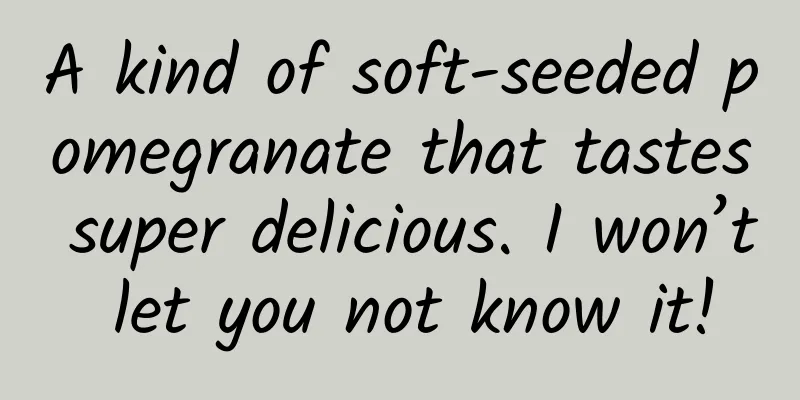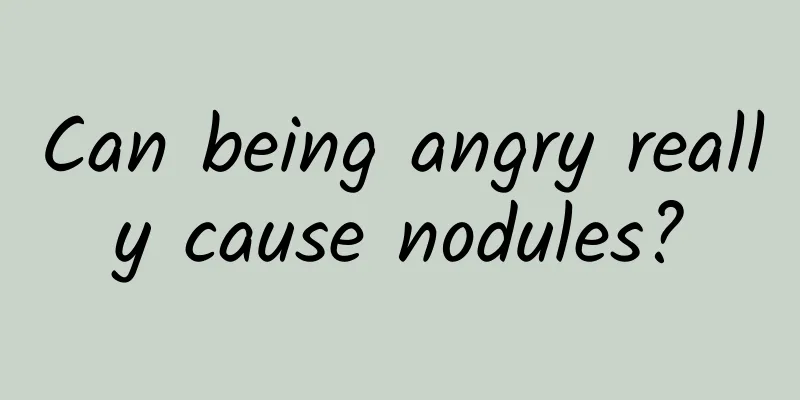I'm not hungry but I still want to eat. Am I gluttonous?

|
There are many such scenes in life: it is time to go to bed, but you always feel that you need to eat something to make the night complete; or you have just filled your stomach, but your mouth still feels lonely when you encounter other foods; or you have already had a full stomach, but you still tear open the snack bag . All of the above belong to the phenomenon of "hungry mouth but not hungry stomach". Some people think that this is purely because of gluttony, but they don't know that many times, there are many factors controlling your appetite. Source: unsplash Both physiology and psychology affect your appetite. When people say "I'm hungry", they are often not just physically hungry. "Hunger" can be divided into two types: steady-state hunger and hedonic hunger . When you feel hungry and feel dizzy, you want to eat something, which is called "steady-state hunger". It is the need for people to eat when they are hungry, and it is the body's simple need for energy and food. As for "hedonic hunger", it generally refers to the "pseudo-hunger" that occurs when there is no need to eat, but due to the desire for food and taste stimulation, it actually reflects the body's desire for happiness and satisfaction. Delicious food has infinite appeal to people, and people need to enjoy themselves by eating delicious food. The reason why steady-state hunger and hedonic hunger appear is precisely the result of the influence of people's physiological and psychological factors. In the process of evolution, organisms need to take in enough food to ensure the normal functioning of their body functions. Eating when hungry is a very instinctive behavior, which is controlled by the limbic system and hypothalamus of the brain. In the human hypothalamus, there are feeding centers and satiety centers, and there is mutual inhibition between the two. In addition, the amygdala and septum of the limbic system can play a role in regulating feeding behavior. Sometimes we eat more of our favorite foods or go on a diet, and these eating behaviors are largely influenced by the cerebral cortex . At the same time, a variety of neurotransmitters in the brain also affect eating behaviors, but their functions are different. Some will promote eating and make you want to eat more unconsciously, such as norepinephrine and dopamine, while leptin and cholecystokinin will inhibit eating behavior. In addition to physiological factors, psychological factors also affect human appetite. For example, in life, we may have a special preference for a certain kind of food, which may be due to the cherishment of good times and the commemoration of certain things. To put it another way, our preference for sweets such as cakes is often due to fond childhood memories. For example, when we were young, our parents gave us a piece of cake as a reward for good behavior. This expectation for cake may continue into adulthood. Conversely, some foods that appear in "nightmares" can also reduce our appetite. Why do I always want to eat even though I’m not hungry? ****After knowing the factors that control appetite, we can clearly answer the question "Why do you want to eat when you are not hungry?" Behind the mouth addiction is that people want to achieve spiritual and emotional "fullness" by taking in food . At this time, eating behavior is actually a way for people to seek comfort, relieve stress, and reward themselves. Dopamine pathway Source: Baidu Encyclopedia We all know that dopamine in the brain can be said to be a "happiness factor" that affects people's emotions and feelings. If the dopamine concentration in the human body is too low, it may cause depression, obesity, fatigue syndrome, and even attention deficit hyperactivity disorder. If the dopamine concentration increases, it will make people feel happy. Source | "Food Intake Recruits Orosensory and Post-Ingestive Dopaminergic Circuits to Affect Eating Desire in Humans" As a neurotransmitter, the secretion of dopamine is related to eating, sleeping, etc. If you want to increase the secretion of dopamine, the most direct way is to consume high-sugar, high-calorie foods . In this way, the brain's reward system is activated . This is why when people are emotionally distressed, they put "eating a good meal" first. However, since the behavior that activates the reward system is likely to be repeated, it can induce emotional eating, which can easily increase the demand and tolerance for high-sugar foods, forming a vicious cycle. Therefore, when you are in a situation of "wanting to eat even when you are not hungry" for a long time, you should not take it lightly and think that you are just greedy. These will make people want to eat more , and sometimes they are actually caused by diseases . For example, migraine patients will have an uncontrollable desire for chocolate a few minutes or a few days before the actual migraine attack. Hyperthyroidism can also increase appetite. Thyroid hormone controls the body's metabolism, so if you eat a lot but don't gain weight, and you have symptoms such as fatigue, depression, brittle nails or hair loss, you should be careful about whether you have hyperthyroidism. Of course, insomnia and high stress can also lead to "overeating." When the human body lacks sleep for a long time, the part of the brain that controls motivation and desire is activated, and the area that makes complex judgments and decisions becomes dull. In this way, even if the body does not need to consume too many calories, the appetite will still be opened. Too much psychological pressure will also make people eat too much, and under the influence of the stress hormone cortisol, "eating" will also become a choice. Therefore, many times, for health reasons, we need to control our appetite. This is not to promote dieting, but to eat scientifically. For example, to meet the normal needs of three meals a day, choose more healthy, nutritious and filling foods. When you really need to replenish energy, add meals in time. When your appetite is too strong or you experience emotional overeating, you must take it seriously. You can divert your attention appropriately, ensure adequate sleep, or seek help from a professional doctor. Source: Digital Beijing Science Center WeChat Official Account Review expert: Li Xianhong, national second-level psychological counselor |
<<: 【Energy History 02】What's inside the nucleus? Open it and take a look
Recommend
Fun fact: Why does hair split?
Having beautiful hair is the dream of many girls,...
What is the correct way to eat Lingzhi?
Food is the safest and most effective way to regu...
Soften fish bones and blood vessels? You have overlooked the real usefulness of vinegar!
Looking at the daily life of the world, firewood,...
The efficacy and function of paparazzi flower
Diseases require improvement through medicine. Di...
The efficacy and function of hairy bitter melon
In fact, the occurrence of many human diseases is...
The cold wave is coming, and some fat people are in trouble! Why is the fat on the body not resistant to freezing?
The recent drastic drop in temperature in many pa...
When is the best time to eat cookies and cakes to stabilize blood sugar?
I believe many people have this dilemma: they wan...
The efficacy and function of purple wing calyx
There are many types of Chinese medicine. When we...
The efficacy and function of Hainan Torreya grandis
Hainan Torreya grandis is a common Chinese medici...
The efficacy and function of Chijinsan
The traditional Chinese medicine Chijingsan is al...
The efficacy and function of redwood
As we all know, rosewood seeds are a very common ...
How is the lunar south pole different from Earth's? Can India really find water ice at the lunar south pole?
On August 23, 2023, India's Chandrayaan-3 mis...
The efficacy and function of Yarrow
Chinese medicinal materials are very effective in...
The efficacy and function of Aquilegia qinlingensis
Aquilegia qinlingensis is a medicinal herb that i...
What are the medicinal values of Cuscuta australis
In traditional Chinese medicine, Cuscuta australi...









